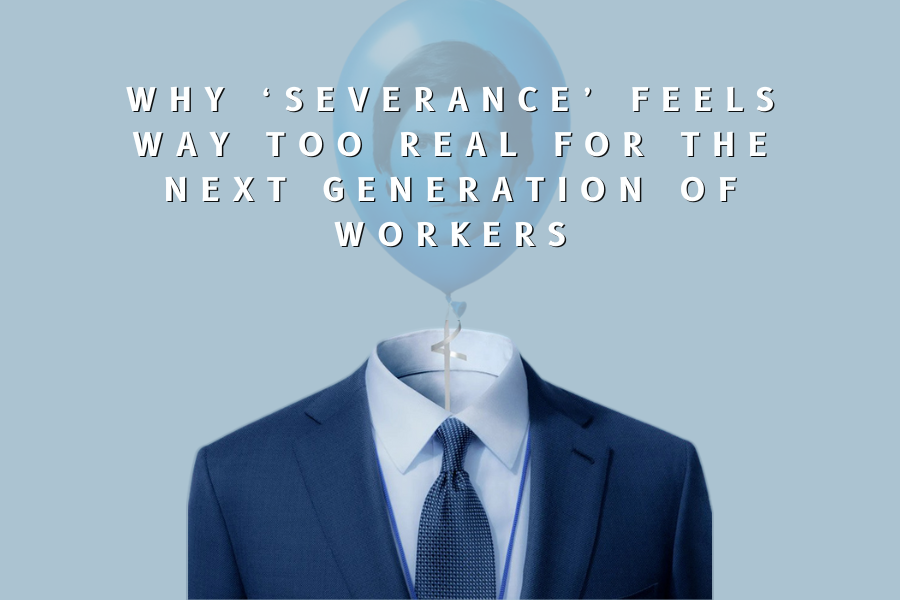As a high school senior preparing for college and, eventually, the workforce, I can’t help but wonder: is this what we have to look forward to? Long hours, endless emails, and a job that demands so much of us that we wish to switch our brains off at the end of the day. Apple TV+’s Severance might be a sci-fi thriller, but the reality it portrays- the complete separation of work and personal life- feels eerily relevant to what’s happening in the real world.
The show follows employees at Lumon Industries who undergo a procedure that literally splits their minds in two: one version of themselves exists only at work, while the other has no idea what happens during the workday. It’s a creepy concept, but in a world where people answer emails at dinner and work stress bleeds into every part of life, Severance isn’t just fiction; it’s a warning.
The Fear of Never Clocking Out
Right now, as students, we already feel the pressure to be constantly working. Between school, homework, extracurriculars, and college applications, it’s hard to ever feel truly “off the clock.” And from what we see in adults, it only gets worse. Many of our parents and teachers are always checking emails, taking work calls after hours, and stressing about deadlines long after they’ve left the office.
The pandemic only made this worse. Remote work blurred the lines between work and home, making it so that some people never really stopped working at all. While Severance presents an extreme version of this, where people are literally cut off from their personal lives during work, it’s not too far from how many jobs expect workers to completely dedicate themselves to their company, even outside of office hours.
Is Work Supposed to Be Our Entire Identity?
One of the creepiest parts of Severance is how it forces employees to become two completely different people. But in a way, don’t we already do that? There’s an expectation that we act a certain way in school, at work, or in professional settings, often at the expense of our own emotions, personal struggles, or even ethical concerns.
For young people about to enter the workforce, this raises an important question: How much of ourselves are we willing to give to a job? Older generations often tell us that success requires sacrifice, but at what cost? The idea of “hustle culture” has made it seem normal to work 60+ hours a week and sacrifice personal time for career success. But should that really be the standard?
Learning From Severance Before It’s Too Late
The good news is that people, especially young workers, are starting to push back. Movements like “quiet quitting” and an increased focus on mental health show that more people are refusing to let work take over their lives. There’s a growing realization that jobs should fit into our lives, not the other way around.
As high schoolers, we’re constantly being told to prepare for the future. Severance makes us stop and ask: what kind of future are we preparing for? If it’s one where our entire worth is tied to our productivity, then maybe we need to rethink what success really means. Because no one should have to split themselves in two just to survive the workday.






